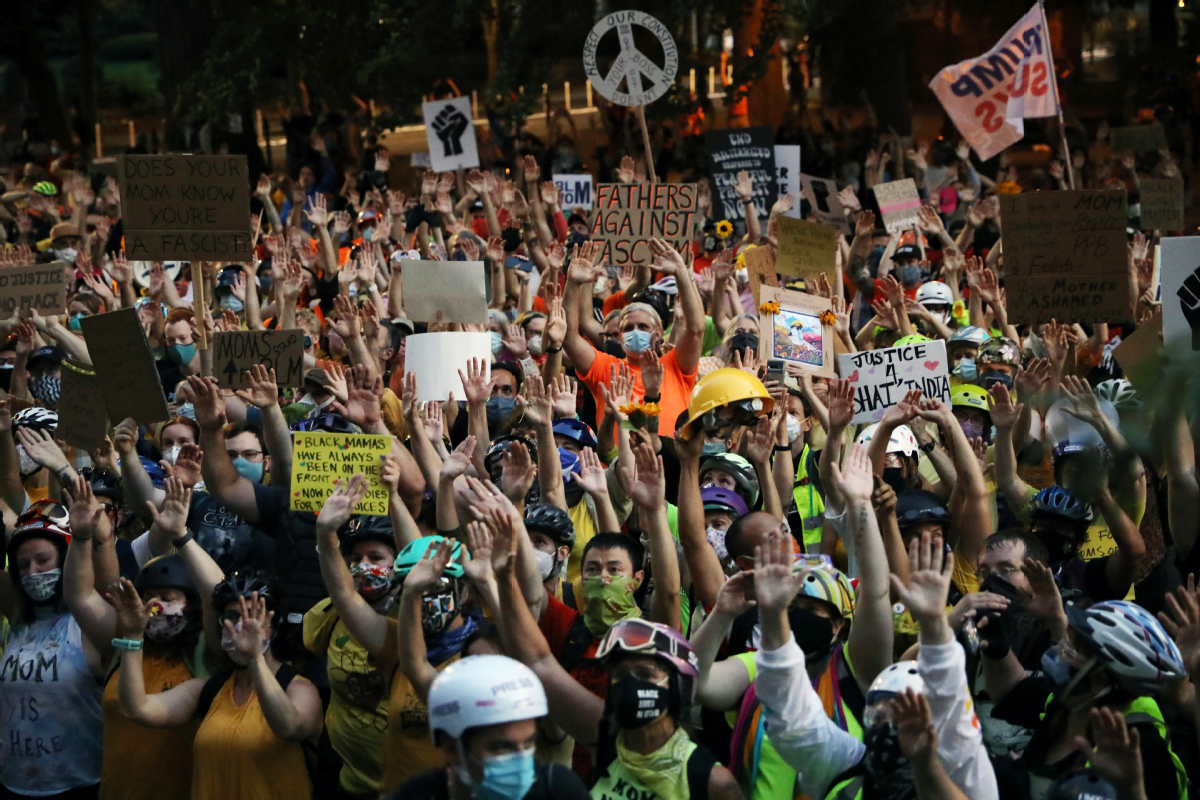Racism aggravates chaos in Western societies
By Song Lidan | China Daily | Updated: 2023-11-10 08:06

Segregation as an official policy may have ended in the US in the 1960s, but systemic racism continues to plague US society to this day. Racism may be an "American disease", but it is not confined to the United States and it inflicts the whole of the West.
This year marks the 10th anniversary of the "Black Lives Matter" movement. An international social movement, Black Lives Matter began in the US in 2013 and is dedicated to fighting racism and anti-black violence, especially in the form of police brutality.
Its name signals condemnation of the unjust killings of black people by the police (black people are far more likely to be killed by the police than white people in the US) and the demand that society value the lives and humanity of the black people as much as it values those of the white people. Black Lives Matter was founded in 2013 by three black community organizers after George Zimmerman, a man of German and Peruvian descent, was acquitted on charges stemming from his fatal shooting of Trayvon Martin, an unarmed black teenager, in Sanford, Florida, in February 2012.
Although "Black Lives Matter" is now a global network, people feel disappointed that the movement has not been able to significantly improve the social conditions of the black people, as the "American disease" still afflicts US society. And its appeals to governments to punish the perpetrators of violence, and protect the lives and properties of ethnic minority groups, especially the black people, have not borne the desired results.
A survey conducted earlier this year showed that fewer US citizens support the Black Lives Matter movement today than a few years back, because just protests, even massive protests, cannot eradicate systemic racism.
First, the overall living conditions of ethnic minorities in the US are relatively poor. More often than not they are denied opportunities for upward mobility in the labor market. They are also underrepresented in politics, and are the targets of hate crime and victims of police brutality.
In fact, despite the "Defunding Police "movement, police brutality continues unrestrained in the US. At least 1,176 people were killed by police officers last year, according to a project called Mapping Police Violence — the most since experts began tracking police violence — with the black people accounting for 24 percent of the deaths although they comprise only 13 percent of the total US population.
Most shockingly, less than 0.3 percent of the police officers responsible for the deaths between 2013 and 2022 have been convicted. This suggests the police have the tacit support of the legislature and the judiciary to unnecessarily use force and resort to violence, especially against ethnic minorities, in the name of maintaining "law and order".
Second, race-based hate crimes are on the rise, posing a serious threat to the social order in the West.
Besides, due to a deep sense of discrimination and persecution, some ethnic minority extremists protest against the mainstream society using violence and terrorist attacks, which further increase racial contradictions.
Third, since 2000, the support for far-right parties has been rising in Europe.
Worse, center-right conservative parties have changed their policies, appealing to people who back hard-line anti-immigration policies for votes or support. This has shifted the overall political landscape in Europe to the right.
In the US since Donald Trump was elected US president in 2016, people have witnessed the rise of what many call the "Trumpublican Party" and the fierce growth of white supremacism.
And fourth, since the dissolution of the Black Panther Party in the 1980s, anti-racism social movements have followed an anti-hierarchical, consensus-based "horizontal" line in the "post-ideological" era, thus the movements have limited themselves to theories and organizations under the impact of "decentralization", without mass involvement. So it's hard for them to find an exit in constant protests or demonstrations.
The racial contradictions in the West will intensify with the worsening of "Western chaos". Police brutality against minorities is unlikely to be curbed in the near future. Under the pretext of maintaining "law and order", the governments have cracked down on anti-racism movements. The US once tried to crush the civil rights movement with the Counter-Intelligence Program of the FBI. Today, it is strengthening the monitoring of anti-racist activists and groups with the Domestic Terrorism Prevention Act of 2022.
Hence, the Western-led US does not have the moral high ground when it comes to human rights issues. Instead of lecturing others, the West should seek dialogue and engagement.
The author is an associate researcher at the Chinese Academy of Social Sciences.
The opinions expressed here are those of the writer and do not necessarily represent the views of China Daily and China Daily website.
If you have a specific expertise, or would like to share your thought about our stories, then send us your writings at opinion@chinadaily.com.cn, and comment@chinadaily.com.cn.
























